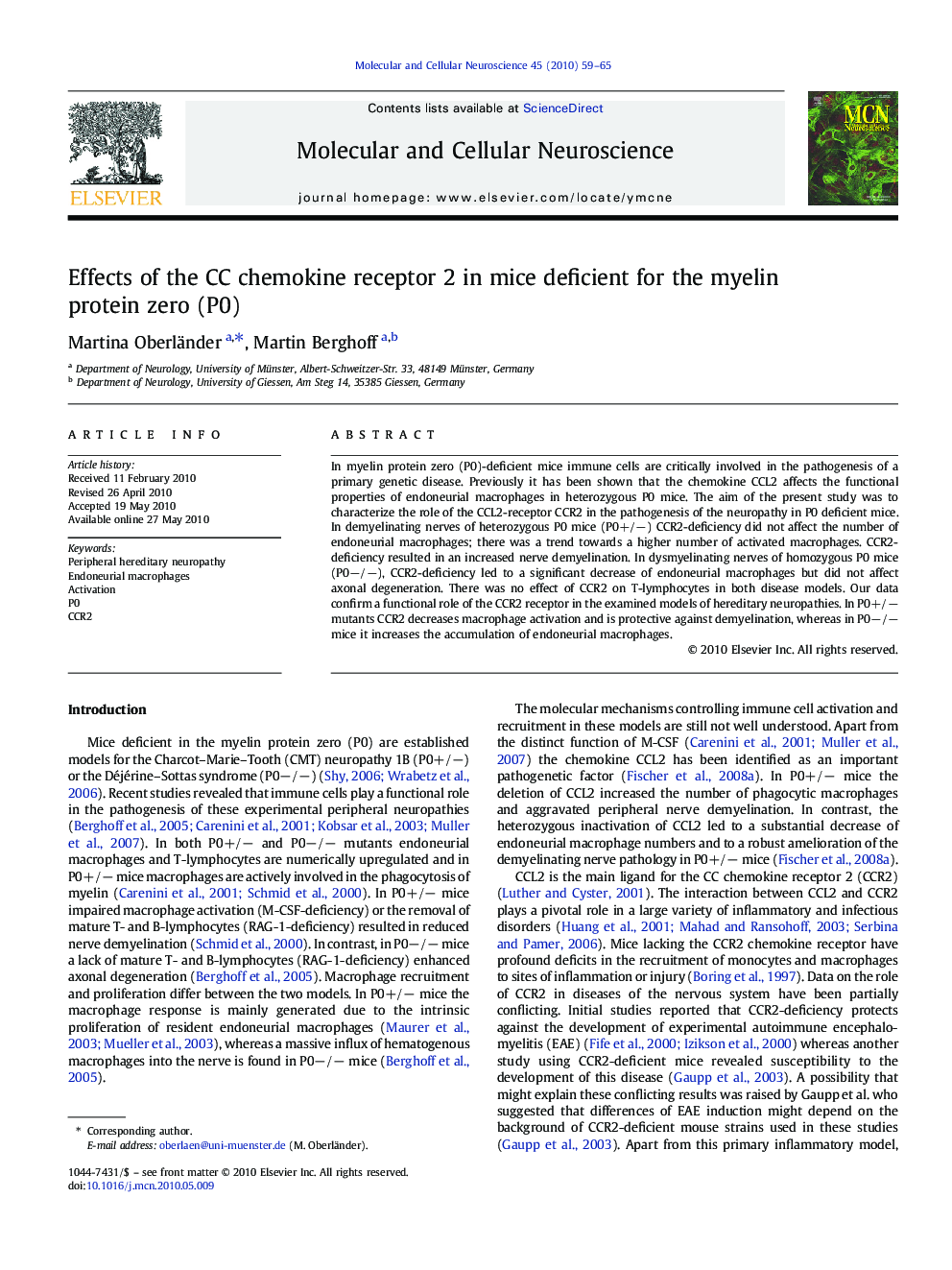| Article ID | Journal | Published Year | Pages | File Type |
|---|---|---|---|---|
| 10956694 | Molecular and Cellular Neuroscience | 2010 | 7 Pages |
Abstract
In myelin protein zero (P0)-deficient mice immune cells are critically involved in the pathogenesis of a primary genetic disease. Previously it has been shown that the chemokine CCL2 affects the functional properties of endoneurial macrophages in heterozygous P0 mice. The aim of the present study was to characterize the role of the CCL2-receptor CCR2 in the pathogenesis of the neuropathy in P0 deficient mice. In demyelinating nerves of heterozygous P0 mice (P0+/â) CCR2-deficiency did not affect the number of endoneurial macrophages; there was a trend towards a higher number of activated macrophages. CCR2-deficiency resulted in an increased nerve demyelination. In dysmyelinating nerves of homozygous P0 mice (P0â/â), CCR2-deficiency led to a significant decrease of endoneurial macrophages but did not affect axonal degeneration. There was no effect of CCR2 on T-lymphocytes in both disease models. Our data confirm a functional role of the CCR2 receptor in the examined models of hereditary neuropathies. In P0+/â mutants CCR2 decreases macrophage activation and is protective against demyelination, whereas in P0â/â mice it increases the accumulation of endoneurial macrophages.
Keywords
Related Topics
Life Sciences
Biochemistry, Genetics and Molecular Biology
Cell Biology
Authors
Martina Oberländer, Martin Berghoff,
